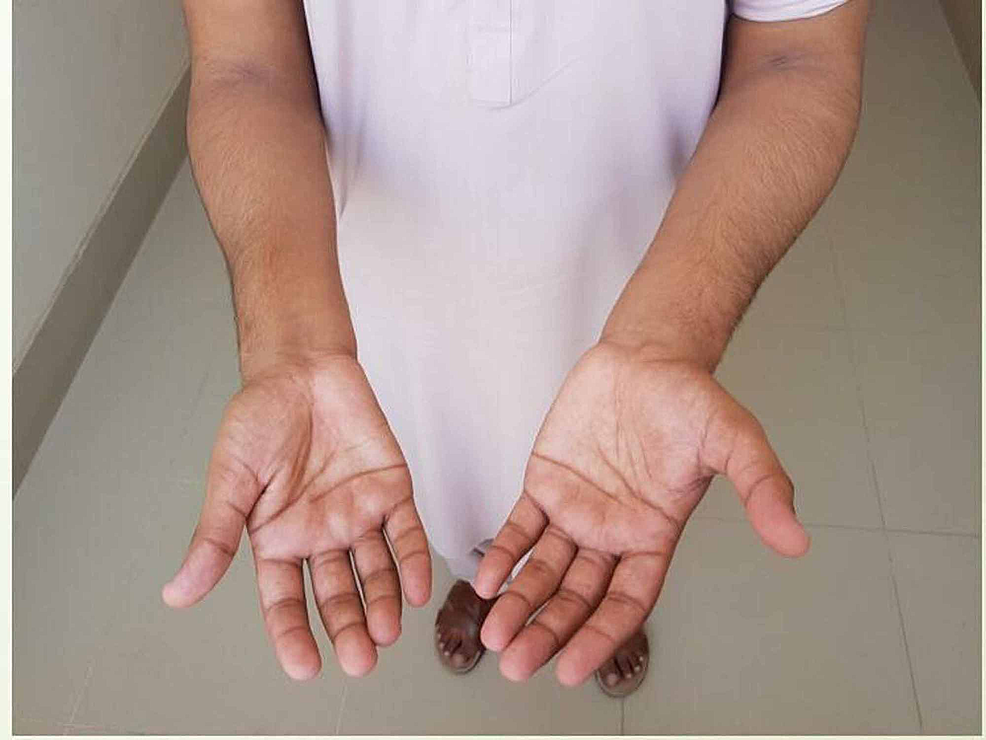Monomelic Amyotrophy: Navigating the Complex World of Rare Neurological Disorders
Introduction:
In the vast landscape of neurological disorders, monomelic amyotrophy stands as a unique and often misunderstood condition. This article aims to shed light on the intricacies of monomelic amyotrophy, exploring its causes, symptoms, diagnosis, treatment options, and the impact it has on the lives of those affected.
What is Monomelic Amyotrophy? Monomelic amyotrophy is a rare neurological disorder characterized by the gradual onset of muscle weakness and atrophy in specific limbs, typically affecting only one arm or leg. It is essential to distinguish this condition from other neuromuscular disorders to ensure accurate diagnosis and appropriate management.

Causes of Monomelic Amyotrophy: While the exact causes of monomelic amyotrophy remain elusive, there is evidence suggesting a combination of genetic predisposition and environmental triggers. Understanding potential risk factors can contribute to better prevention and management strategies.
Symptoms and Clinical Presentation: The hallmark symptoms of monomelic amyotrophy include muscle weakness and atrophy in a single limb. The affected limb may exhibit specific characteristics, and the progression of symptoms varies among individuals. Recognizing these signs is crucial for early intervention.
Diagnosis of Monomelic Amyotrophy: Diagnosing monomelic amyotrophy involves a comprehensive approach, including clinical examinations, imaging studies, and electromyography (EMG). These tests help healthcare professionals rule out other conditions and confirm the presence of monomelic amyotrophy.
Treatment Options: While there is no cure for monomelic amyotrophy, current medical interventions focus on managing symptoms and improving quality of life. Physical therapy, rehabilitation, and supportive care play integral roles in the overall treatment plan.
Living with Monomelic Amyotrophy: Coping with a rare condition like monomelic amyotrophy requires resilience and adaptability. This section explores practical strategies, support networks, and ways to maintain a fulfilling life despite the challenges posed by the disorder.
Research and Advancements: Ongoing research and clinical trials offer hope for the future. Promising developments in treatment modalities and a deeper understanding of the condition bring optimism to those affected by monomelic amyotrophy.
Preventive Measures: While prevention may not be straightforward, certain lifestyle modifications and awareness of potential risk factors may contribute to reducing the likelihood of developing monomelic amyotrophy.
Real-Life Stories: Personal narratives from individuals living with monomelic amyotrophy provide insight into the daily challenges they face, along with inspirational stories of resilience and determination.
Impact on Mental Health: Addressing the emotional aspects of living with a rare condition is crucial. Mental health support and resources play a vital role in ensuring the overall well-being of individuals affected by monomelic amyotrophy.
Global Awareness and Advocacy: Advocacy organizations play a pivotal role in raising awareness about monomelic amyotrophy. This section explores the importance of global awareness and the initiatives undertaken to support those with the condition.
Future Outlook: The future holds promise for advancements in understanding and treating monomelic amyotrophy. With ongoing research and a collective commitment to finding solutions, there is hope for improved outcomes and, ultimately, a cure.
Conclusion: In conclusion, monomelic amyotrophy is a complex and often overlooked neurological disorder. By increasing awareness, fostering research, and providing support, we can collectively make strides toward a brighter future for those affected by this condition.
Frequently Asked Questions (FAQs):
- Can monomelic amyotrophy be inherited?
- Explore the genetic factors associated with the condition.
- What is the typical age of onset for monomelic amyotrophy?
- Discuss the age range when symptoms commonly appear.
- Are there any experimental treatments for monomelic amyotrophy?
- Provide information on ongoing clinical trials and research initiatives.
- How does monomelic amyotrophy impact daily life?
- Address the challenges individuals may face in their daily routines.
- How can I support someone with monomelic amyotrophy?
- Offer practical tips and emotional support for friends and family.









